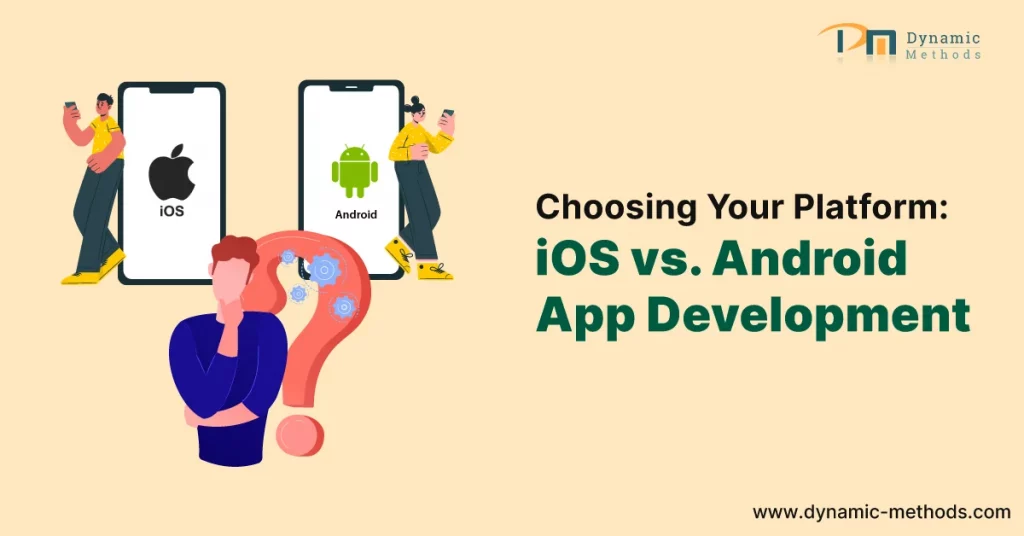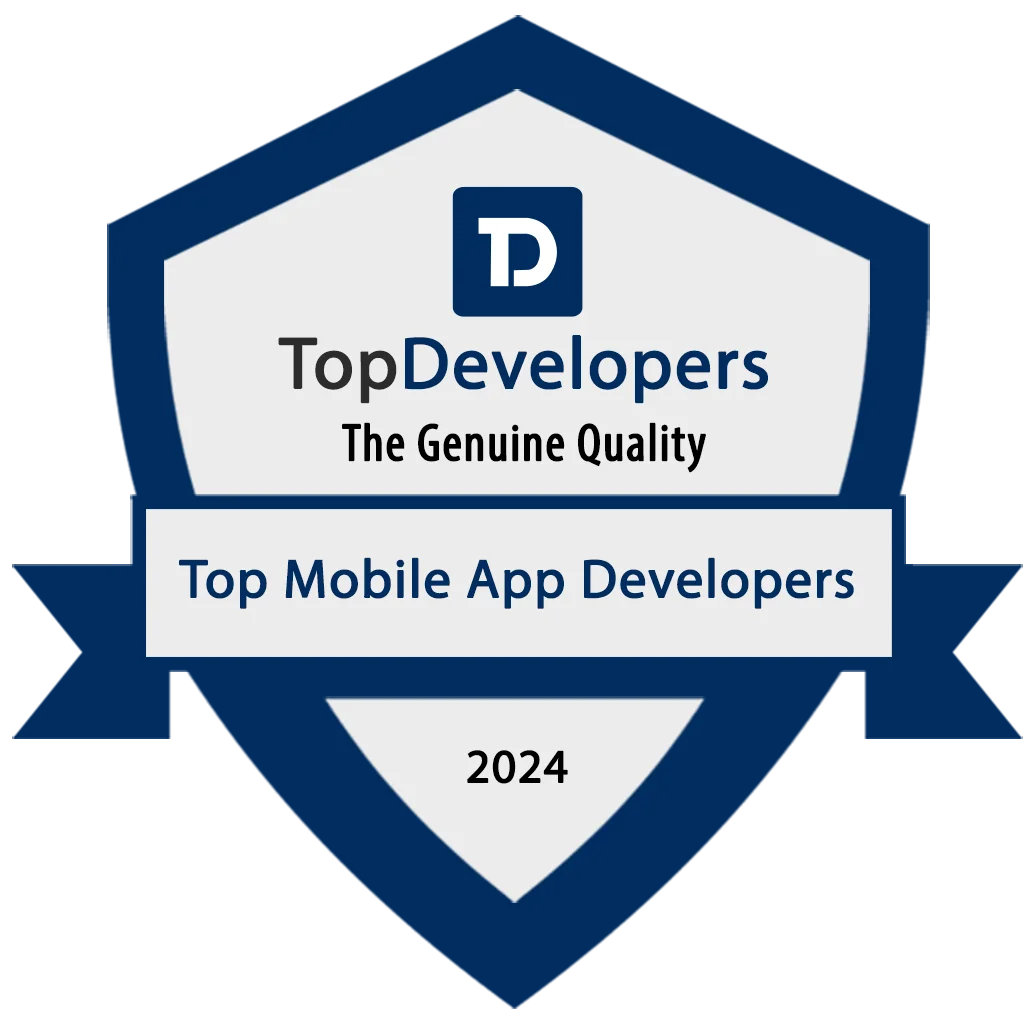
A Beginner's Guide to Making the Right Decision
In the ever-evolving world of mobile app development, choosing the right platform is crucial for success. With iOS and Android dominating the market, developers often face the dilemma of which one to target. Both platforms have their strengths and weaknesses, making the decision a challenging one.
In this beginner’s guide, we’ll walk you through the key factors to consider when choosing between iOS and Android for your app development project. By the end of this article, you’ll be better equipped to make an informed decision that suits your goals and target audience.
1. Understanding the Basics of iOS vs Android
iOS : The Apple Ecosystem
Android : The Open Source Giant
2. Target Audience and Market Share
Who is Your Target Audience?
- Are you developing for a specific demographic?
- What are the preferences of your potential users?
Market Share
- Which platform holds a larger market share in your target region?
- Do you want to tap into a global or niche market?
3. Development Tools and Resources
iOS Development Tools
- Xcode: serves as Apple's all-in-one platform for creating iOS applications.
- Swift: Apple's programming language, known for its performance and safety.
- Objective-C: An older but still widely used language for iOS development.
Android Development Tools
- Android Studio: stands as Google's go-to software for crafting Android applications
- Java: The traditional language for Android development.
- Kotlin: A more modern and preferred language for Android development.
4. Monetization Strategies
iOS
- The App Store has a reputation for higher user engagement and willingness to pay for apps.
- In-app purchases and subscriptions are common monetization strategies.
Android
- The Google Play Store has a more extensive user base, but users are often less willing to spend on apps.
- Ad-supported models and freemium apps are prevalent on Android.
5. App Development Costs
iOS
- Creating for iOS tends to be costlier because of the requirement for Apple-specific hardware and software.
- The app review process may lead to additional development time and costs.
Android
- Android development is generally more cost-effective since it doesn't require specific hardware.
- The diverse device landscape can lead to additional testing costs.
6. Fragmentation vs. Uniformity
iOS
- Apple has strict control over its hardware and software, resulting in a consistent user experience.
- You'll need to cater to a limited range of device configurations.
Android
- Android's open nature leads to a wide range of devices, screen sizes, and resolutions.
- More testing and optimization may be required to ensure compatibility.
Conclusion
Choosing between iOS and Android for your mobile app development project is a crucial decision that can impact your app’s success. Consider your target audience, development tools, monetization strategy, budget, and fragmentation preferences carefully. Dynamic Methods provides mobile app development services to our clients and has a team of skilled professional. you may create an app that is both successful and well-received by making an informed decision. Contact us.




















I simply could not go away your web site prior to suggesting that I really enjoyed the standard info a person supply on your guests Is going to be back incessantly to investigate crosscheck new posts
I’m delighted to hear that you enjoyed the information on the website! Your feedback is much appreciated. I look forward to having you back regularly to check out new posts. If there’s anything specific you’d like to see or if you have any questions, feel free to let me know. Thank you for your support!
I was recommended this website by my cousin I am not sure whether this post is written by him as nobody else know such detailed about my difficulty You are wonderful Thanks
Thank you for sharing your experience, and I’m glad you found the information helpful! I’m here to provide assistance or answer any questions you might have. If there’s anything specific you’re struggling with or would like to know more about, feel free to ask. Your kind words are greatly appreciated!
Usually I do not read article on blogs however I would like to say that this writeup very compelled me to take a look at and do it Your writing style has been amazed me Thank you very nice article
Thank you for such kind words! I’m thrilled to hear that the article captured your interest and positively impacted you. If there are any topics or questions you’re curious about, feel free to ask. Your feedback is greatly appreciated!
I don’t think the title of your article matches the content lol. Just kidding, mainly because I had some doubts after reading the article.
I appreciate the humor! If you have any questions or need clarification on any point in the article, please feel free to share your doubts. I’m here to help clarify things for you. What would you like to know more about?
Your point of view caught my eye and was very interesting. Thanks. I have a question for you.
I’m glad you found the perspective interesting! Please feel free to ask your question and I will do my best to provide a helpful answer.
helloI really like your writing so a lot share we keep up a correspondence extra approximately your post on AOL I need an expert in this house to unravel my problem May be that is you Taking a look ahead to see you
Hello! Thank you for your kind words. I’m glad you enjoy my writing. I’d be happy to correspond more about the post on AOL and help with your problem. Feel free to reach out anytime. Looking forward to hearing from you!
Your point of view caught my eye and was very interesting. Thanks. I have a question for you.
Thank you for your feedback! I’m glad you found the perspective interesting. Feel free to ask your question.
Awsome post and straight to the point. I am not sure if this is truly
the best place to ask but do you people have any thoughts on where to get some professional writers?
Thx 🙂 Escape rooms hub
Thank you for the compliment! For professional writers, you might consider platforms like Upwork, Freelancer, or LinkedIn, where you can find experienced writers with various specialties. If you need further recommendations or help, feel free to ask! 😊
Hi there, just became alert to your blog through Google, and found that it is truly informative.
I am gonna watch out for brussels. I will be grateful if you continue this in future.
Many people will be benefited from your writing.
Cheers! Escape roomy lista
Thank you so much for your kind words and for alerting others to our blog! We’re thrilled to hear you found the information useful and we’ll definitely continue to share more insightful posts in the future. Cheers!
Hello my loved one I want to say that this post is amazing great written and include almost all significant infos I would like to look extra posts like this
Thank you so much for your kind words! I’m thrilled you enjoyed the post and found it informative. Stay tuned for more updates!
Hi my loved one I wish to say that this post is amazing nice written and include approximately all vital infos Id like to peer more posts like this
Thank you for the kind words! I’m glad you enjoyed the post. If you have any specific topics or questions in mind, feel free to let me know, and I’ll do my best to address them in future posts.
Normally I do not read article on blogs however I would like to say that this writeup very forced me to try and do so Your writing style has been amazed me Thanks quite great post
Thank you for your kind words! I’m thrilled that the writing style caught your attention and encouraged you to read more. I appreciate your feedback!
Wonderful beat I wish to apprentice while you amend your web site how could i subscribe for a blog web site The account aided me a acceptable deal I had been a little bit acquainted of this your broadcast provided bright clear idea
Thank you! To subscribe, check for the subscription option on the site or feel free to reach out, and I’ll guide you through it.
I have been surfing online more than 3 hours today yet I never found any interesting article like yours It is pretty worth enough for me In my opinion if all web owners and bloggers made good content as you did the web will be much more useful than ever before
Thank you so much for your kind words! I’m glad you found the article worthwhile. Your support means a lot! 😊
Wow wonderful blog layout How long have you been blogging for you make blogging look easy The overall look of your site is great as well as the content
Thank you for the compliment! I’m glad you enjoy the layout and content—it’s rewarding to hear it all comes together well.
I do not even know how I ended up here but I thought this post was great I do not know who you are but certainly youre going to a famous blogger if you are not already Cheers
Thank you so much! I’m glad you enjoyed the post—your support means a lot. Cheers!
Thanks for sharing. I read many of your blog posts, cool, your blog is very good.
Thank you! I’m glad you enjoy the blog and find it valuable.
Your article helped me a lot, is there any more related content? Thanks!
I’m glad it was helpful! Yes, there’s more related content—feel free to explore other posts on the blog.